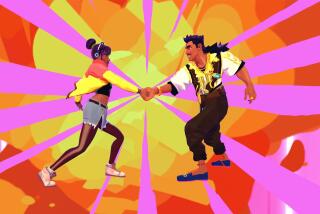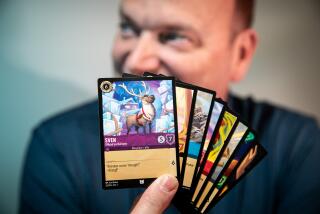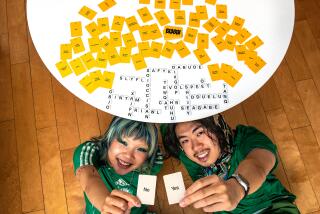Game Puts Family Feelings on the Table
KALISPELL, Mont. — Two family counselors here have teamed up to market a game they developed to help members of families express their feelings.
“Feeling Faces,” a set of round cards depicting emotions, invites players to match cards with feelings and encourages participants to talk about their feelings.
Creators Anna Louise Walker and Kathy McCaughey Wright have worked with troubled families involved with the Flathead County Juvenile Probation Department. They knew that families needed to learn communication skills to improve home life but found out there was a critical lack of materials to help them.
Wright said she began developing the Feeling Faces game after she noticed that youths’ attention was drawn to a series of smiling and scowling faces in her notebook.
Expressions on the Feeling Faces cards are happy, sad, puzzled, determined, scared, excited and lonely. Players can simply match them, as in many simple card games, or they can use them to stimulate discussion about emotions.
“Feelings are neither good nor bad,” the two counselors say in their company literature. “It’s what we do with our feelings that affect us in a positive or negative way.”
Share Feelings
In families where communication skills have not been developed, Wright said: “People who are angry think that they have to fight. When families talk about anger, they learn that it’s OK to be angry, and learn to share those feelings in an appropriate way. They need to learn how to share their positive feelings, too.”
Wright said when parents and children discuss what makes them feel frightened, for instance, or the last time that they were frightened, they learn a lot about each other.
“Kids are fascinated to learn the things that their parents are afraid of. It brings up stories of the past.”
Such conversation enables everybody to build vocabulary, learn listening skills and gain the ability to identify feelings, she said.
“Every family wants love and understanding,” she said, but many don’t know how to obtain it. Walker and Wright believe that the key is to increase communication.
Now that the card game has been printed and distributed, the two have developed a board game that works on the same principles.
“Self-help groups are growing,” said Ms. Wright, “and everybody needs tools and techniques. In any kind of family dysfunction, people are stifling their feelings. These games help them express them.”


